History of State and Law
N.N. Zipunnikova,
(Candidate of Juridical Sciences), assistant-professor
Ural State Law Academy
The article is devoted to methodological problems of historical and legal research of education and science area in Russia in XVIII-XX centuries. The author characterized methodological pluralism, op-portunity of new ways and actuality of traditional approaches to study of political and ideological con-texts, legislation and management in the area of education and science in Russia.
Key words: education, science, historical and juridical research, methodology, research methods.

History of State and Law
D.E. Kuznetsov
a postgraduate student
Polzunov Altai State Technical University
This article reveals the reasons of banditism growth in Siberia in the 20s of the XXth century, liqui-dation methods of banditism by militia, OGPU and population. Key words: banditism, military service, partisan criminal fighters, kulak insurrectionary movement.
History of State and Law
I.V. Medvedev,
Ph.D. (Candidate of Pedagogical Sciences)
V.V. Semenov, Ph.D. (Candidate of Technical Sciences), assistantprofessor Barnaul Law Institute of the Ministry of the Interior of Russia
V.V. Semenov, Ph.D. (Candidate of Technical Sciences), assistantprofessor Barnaul Law Institute of the Ministry of the Interior of Russia
The article discusses organization and various aspects of physical training in law-enforcement bodies
of pre-revolutionary Russia, its formation and development in the period between 1860 and 1917.
Key words: physical training of police, physical education.
History of State and Law
A.S. Smikalin,
Ph.D. (Doctor of Juridical Sciences), professor
Ural State Law Academy
The article analyzes in detail legal regulation, arrival of foreign war prisoners in Ural, describes
how to use the labour of prisoners, their contribution to the economic development of the region.
Key words: war, war prisoners, regulatory legal acts, Ural, the First World War, Russian army,
voluntary military unit.
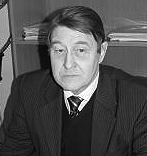
E.A. Chiburova,
Ph.D. (Candidate of Historical Sciences)
Barnaul Law Institute of the Ministry of the Interior of Russia
The article analyses historical setting in the Soviet Union after the end of the Great Patriotic War,
a high degree of criminalization of Soviet society, strong, moreover, by post-war-amnesty. The police
fought crime often at the expense of their life.
Key words: crime rate, banditism, crime.
State and legal regulation
public relations
Yu.V. Anokhin,
Ph.D. (Doctor of Juridical Sciences), assistantprofessor
Barnaul Law Institute of the Ministry of the Interior of Russia
In the article the process of genesis and development of mechanism of human rights and freedoms
in Russia from the XIX
th
century till present is discussed. It analyses normative consolidation of relations
between state and individual, a legal mechanism to enforcement rights and obligations of citizens
of Russia.
Key words: civil society, human right, personal liberty, social and legal vulnerability, electoral law.
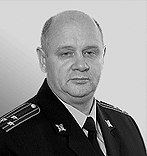
State and legal regulation
public relations
M.V. Davydov
Ministry of Internal Affairs, Barnaul Division
e-mail: mr.davydoff@bk.ru
The norms of unmanned flying vehicles using are not clearly reflected in international law. This article
gives an overview of problems, connected with international law problems of usage of unmanned flying
vehicles.
Key words: use of unmanned flying vehicles.
State and legal regulation
public relations
K.V. Cheprasov
a postgraduate student of Altai State University
e-mail: Torquemada89@mail.ru
The article is devoted to analyses the notion and meaning of the concept of separation of powers
in state mechanism in Russia.
Key words: constitutional law, federalism, the principle of separation of powers.
State and legal regulation
public relations
S.P. Shatilov,
Ph.D. (Candidite of Juridical Sciences), assistantprofessor
Barnaul Law Institute of the Ministry of the Interior of Russia
The article considers main approaches to recognition of law enforcement function and determining
its place in the system of functions of state, there are arguments of this recognition from the point
of view of norms of Russian language, as well as through the ratio of scientists to the law as a category
of either positive or objective.
Key words: state, right, functions of state, law-enforcement function, positive law, objective right.
State and legal regulation
public relations
A.V. Shipulin
Management Academy of the Ministry of the Interior of Russia
e-mail: anshipulin@yandex.ru
This article discusses principal approaches to development of state management from crime outrages
and threats under signed by the President of the Russian Federation Concept of Public Security. It
defines the place of territorial bodies of Interior in safety related system.
Key words: public administration, public safety, safety system from crime outrages and threats,
the Concept of Public Safety, crime control, territorial bodies of the Ministry of Interior.
Administrative law
and administrative process
V.V. Golovko,
Ph.D. (Doctor of Juridical Sciences), professor
Omsk Academy of the Ministry of Internal Affairs of Russia
The article considers the problem of definition of administrative and jurisdictional activity of both
theoretical and normative-legal terms. It analyzes different points of view of scientists on this issue,
proposes own point of view on administrative and jurisdictional activity of Internal Affairs Agencies as
a form of administrative process implementation.
Key words: administrative jurisdiction, Internal Affairs Agencies, administrative process, administrative
law.
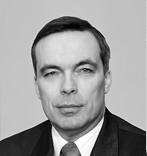
Administrative law
and administrative process
A.O. Meleshko
a postgraduate student of Omsk State University n.a. F.М. Dostoevskiy
It conducts a research and proposes a solution of some administrative and legal application problems
of results of anti-corruption expert review. The author reveals the concept "anti-corruption expert
review" and considers the using of these documents in administrative proceedings. The attention is focused
on the challenge of corruption regulations, expert member’s appeal to authorities, expert record
in registries and registers of legal acts.
Key words: anti-corruption expert review, result of anti-corruption expert review, challenge of corruption
regulations, prosecutor's demand, appeal to authorities, legal opinion.
Administrative law
and administrative process
A.I. Popov,
Ph.D. (Candidate of Juridical Sciences)
Ryazan branch of Moscow University of the Ministry of the Interior
of Russia
e-mail: popov_62@mail.ru
In the article the problems of definition and essence of administrative and contractual regulation
are discussed, its subject is analysed. It is concluded that the study of the regulatory essence of administrative
contract, concept disclosure, subject and mechanism of administrative and contractual regulation
is a new perspective direction of development of the theory of administrative contract.
Key words: administrative contract, the administrative and contractual regulation, the mechanism
of administrative and contractual regulation.
Administrative law
and administrative process
V.G. Shakalova
a postgraduate student of Saint-Petersburg University of the Ministry
of Internal Affairs of Russia
e-mail: v_shakalova@mail.ru
This article discusses various aspects of the right to shelter of the person against whom the preliminary
investigation is conducted as part of civil-law status of individual, including the period of the person’s
arrest and placement in detention. The article reveals correlation of the issues of participation
of these people and their families in housing cooperatives.
Key words: civil legal status, right to shelter, suspect (accused), housing cooperative.
Criminal law, criminology,
criminal and executive right
V.G. Gromov,
Ph.D. (Doctor of Juridical Sciences), professor
Altai Academy of Economics and Law
The article is devoted to analysis of administrative supervision as an intersectoral legal institute
competing with criminal penalty in form of custodial restraint. Suggestions for improvement of the
statutory act about administrative supervision are formulated.
Key words: administrative supervision, custodial restraint, condemned, imprisonment, control,
crime prevention.
Criminal law, criminology,
criminal and executive right
O.V. Ermakova,
Ph.D. (Candidate of Juridical Sciences)
Barnaul Law Institute of the Ministry of the Interior of Russia
e-mail: ermakova_alt@mail.ru
In presented article the author considers main hate or enmity motives, required for qualification of
extremist crimes. In addition, the article shows the mistakes made by judicial authorities at the qualifications
of the said crimes. Special attention is paid to the explanation of such evaluative notions as "social
group".
Keywords: extremist crimes, hate or enmity motives.
History of State and Law
K.V. Len,
Ph.D. (Candidate of Historical Sciences), assistant-professor
Barnaul Law Institute of the Ministry of the Interior of Russia
This article is devoted to the analysis of contradictory elements of the "City status 1870". The author
examines the compliance of the municipal regulation of the real needs of development of cities
in the second half of the 19th century.
Key words: City status, charter to the cities, city reform 1870, city mayor, administrative board
of a city, city council, provincial administration.
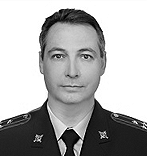
Criminal law, criminology,
criminal and executive right
Yu.A. Odintseva
a postgraduate student of Altai Academy of Economics and Law
e-mail: odintsieva.julia@mail.ru
This article is devoted to allocation of conditions of criminalization and decriminalization of acts in area of economic activity at their set with degree of public danger, sufficient for existence of penal pro-hibition.
Key words: criminalization, decriminalization, conditions, acts in area of economic activity.
Criminal law, criminology,
criminal and executive right
R.A. Semenyuk,
Ph.D. (Candidate of Juridical Sciences),
assistant-professor
Barnaul Law Institute of the Ministry of the Interior of Russia
e-mail: ruslanbarnaul@mail.ru
The presented article examines the social-demographic peculiarities and psychology of murder per-petrators in condition of intoxication. The author analyzes the statistics of MIAC of Ministry of Internal Affairs of Russia over the last five years, as well as materials of 320 criminal proceedings involving murder, under Articles 105, 106, 107 of the Criminal Code. Keywords: peculiarities of murder perpetrators, intoxication.
Criminal trial, criminalistics,
forensics,
operatively-search activity
R.L. Akhmedshin,
Ph.D. (Doctor of Juridical Sciences), professor
Law Institute of Tomsk State University
I.A. Shletser a postgraduate student of Law Institute of Tomsk State University
I.A. Shletser a postgraduate student of Law Institute of Tomsk State University
The article considers typological approaches used in forensic science. It analyses typologies of three psychologists (C.G. Jung, G. Eysenck and K. Leongard), their advantages and disadvantages.
Key words: personality type, extravert, introvert, types of temperament, accentuation of personality traits.
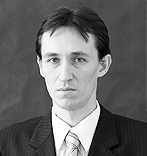
Criminal trial, criminalistics,
forensics,
operatively-search activity
V.Yu. Belitsky,
Ph.D. (Candidate of Juridical Sciences), assistant-professor
Barnaul Law Institute of the Ministry of the Interior of Russia
The article considers the question of possibility and extent of activity of court, its initiatives in evi-dence in criminal proceeding. The views of different groups of scientists are considered. The author en-dorses position of those lawyers who recognizes active role of court in evidence in criminal proceeding. This position is based on the norms of the Constitution of Russian Federation, the Criminal Procedure Code of Russia, judgments of the Constitutional Court of the Russian Federation.
Key words: criminal proceeding, court proceeding, processual court activity, court power, role of court in evidence.
Criminal trial, criminalistics,
forensics,
operatively-search activity
A.M. Zaets,
Ph.D. (Candidate of Juridical Sciences)
Lugansk State University of Internal Affairs n.a. E.A. Didorenko
e-mail: zaec_1985@bk.ru
The article describes features of search of insurance companies as investigatory (search) actions aimed at identifying and fixing details of circumstances of criminal offence in insurance industry.
Key words: search, prejudicial inquiry of crimes, investigator, insurance, official crime, insurance premium, insurance payment.
Criminal trial, criminalistics,
forensics,
operatively-search activity
L.V. Cherepanova,
Ph.D. (Candidate of Juridical Sciences),
assistant-professor
Barnaul Law Institute of the Ministry of the Interior of Russia
The article considers some changes in the legislation related to strengthening the role of procedural
means in protection of legally protected information, obtained during pre-trial criminal proceedings.
Based on the analysis of judicial practice, the government is providing to persons whose rights and
freedoms are directly affected the verification message about the crime, access to documents and materials
doled government checks, and formulates a conclusion about the lack of procedural safeguards,
the implementation of the right to appeal against the procedural decision taken at the stage of initiation
of the criminal case.
Key words: introduction, access to information in a criminal case, material of the preliminary investigation,
protection of information, right to appeal.
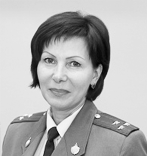
Civil relations
R.N. Morodumov
Ural Law Institute of the Ministry of the Interior of the Russian Federation
e-mail: rinat978@mail.ru;
M.V. Pushkareva a postgraduate student of Ural law institute of the Ministry of Internal Affairs of Russian Federation e-mail: Pushkareva-m86@mail.ru
M.V. Pushkareva a postgraduate student of Ural law institute of the Ministry of Internal Affairs of Russian Federation e-mail: Pushkareva-m86@mail.ru
In this paper the author examines the contract of protecting the life and health individuals as an independent
contract, reveals its characteristics and features. Analyzing different approaches to understand
contract’s subject and object, it is concluded that the object of life and health protection should be
understood a man as a social-biological creature. It presents a classification of the contracts, depending
on number of protected persons and specific of protection.
Key words: security activities, life, health, privacy.
Civil relations
D.A. Morozov
Barnaul Law Institute of the Ministry of Interior of Russia
e-mail: ulpian@yandex.ru
The article considers legal structure "legal form" from the point of view of philosophy and general
theory of law as applied to private sphere. The author critically evaluates the system of legal links only
as a system of legal relations, proves necessity of active use of various legal forms in scientific understanding
of real life.
Key words: civil law, legal form, legal relations.
Civil relations
V.V. Kozlovskaya
a postgraduate student of Belarusian State University
e-mail: vioguk@yandex.ru
The article considers the problem of liability of providers of Internet services throughout the possibility
of application of civil liability legislation measures by the government of the Republic of Belarus.
Providers of the Republic of Belarus are not responsible for the actions of Network users. To improve
legislation can be a useful experience of European Union countries on regulation of relations in the
field of information using on the Internet.
Key words: Internet, provider, civil liability.
Civil relations
M.N. Semjakin,
Ph.D. (Doctor of Juridical Sciences), professor
Ural Law Institute of the Ministry of the Interior of the Russian Federation
e-mail: urmvd@mail.ru
The article considers theoretical and methodological problems of correlation and impact of civil
law on legal practice.
Key words: civil law, civil science, legal practice.

Civil relations
A.A. Chesnokov,
Ph.D. (Candidate of Juridical Sciences), assistant-professor
Barnaul Law Institute of the Ministry of the Interior of Russia
e-mail: chesnokovaa@mail.ru;
O.V. Chesnokova Investigative Department of the Investigative Committee of the Russian Federation in Altai Territory
O.V. Chesnokova Investigative Department of the Investigative Committee of the Russian Federation in Altai Territory
The problem of a choice of assessment criteria of state policy in area of anticorruption efforts, current
condition of the national legal system, social, economic, legal factors of corruption, ways of improvement
increase of effectiveness in law enforcement agencies work in this area are considered in the
article. It is offered to estimate the anticorruption policy on five blocks: a degree of performance of
tasks in view; profitability; legitimacy of activity; archived level of free and equal access of organizations,
citizens to any given welfare; an efficiency rating of the done work directly by population.
Key words: сorruption, anticorruption policy, efficiency, democratism, transparency.
History of State and Law
N.A. Maslov
a postgraduate student of Barnaul Law Institute of the Ministry
of the Interior of Russia
This article considers the legal status of recruits and lower military ranks during the existence
of the recruitment system of manning the army and navy. According to the author the legal status of these
categories of servicemen depended first of all on their state. The duty position and place in the military
ranking influenced quite weakly, affecting only a small group of service relationship.
Key words: army, military service, serviceman, recruit, recruiting duty, lower military rank, legal
status, non-commissioned officer.
History of State and Law
E.V. Suverov
Ph.D. (Doctor of Historical Sciences), assistant-
professor
Barnaul
Law
Institute
of
the
Ministry
of
the
Inter
ior
of
Russia
Implementation of the Soviet penal policy led to the creation of the Siberian labor camp in the late
20
-
ies, where convicted
were going
from all over the Soviet Un
ion. Siblag divisions d
e
cided production
tasks of the state importance. However, in spite of improvement efforts by a
d
ministration medical
-
sanitary and everyday service in Siblag was unsatisfactory.
T
here were a significant number of dead
and sick prisoner
s
a
s a result
; it negatively affected the implementation of production tasks and educ
a-
tional process among prisoners.
Key words:
Siblag, prisoners,
с
onvicted, medical
-
sanitary and everyday ser
vice, p
laces of impri
-
s
onment.
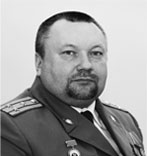
History of State and Law
L.Y. Tarasova
Ph.D. (
Candidate
of Historical Scien
c
es)
Altai Academy of Economics and
Law
The
article
analyses the legal policy of the Soviet state in
regard to
juveniles
in the field of education
and
upbringing
in the years of the
Great Patriotic
War (1941
-1945).
The analysis is
based
on
the
study of historical sources, including archivalones.
Key words:
homeless,
neglected
,education, upbringing.
State and legal regulation
public relations
T.O. Didych
Ph.D. (Candidate of
Juridical Sciences), assistant
-
professor
Taras Shevchenko National University of Kiev
In the article
the author
analyses
the views
of scientists of
the problem of understanding
of law
formation
as a complex,
multifaceted phenomenon
of legal
reality.
Based on the
analysis of the functional
possibilities
of axiological
approach
of
jurisprudence,
the author
attempts to
reveal the
understanding
of the phe
nomenon
of the
formation of the law
as a special social,
legal
value.
Key words:
law
formation,
axiological
approach, value
State and legal regulation
public relations
S.V. Troitski
Ph.D. (Candidate of Juridical Sciences)
Moscow University of the Ministry of the Interior of the Russian Federation
The article briefly
discloses
the Practice of the European Court of human rights
concerning the
violation of
the
art.
10 of the European Convention on human rights and fundamental freedoms of 1950.
The author focuses on the major decisions of the Euro
pean Court of human rights.
Key words:
international law,
european law, freedom of expression, the European Court of human
rights.
State and legal regulation
public relations
A.A. Yunusov
Ph.D. (Doctor of
Juridical Sciences), professor
Academy of the Federal Penal Service of Russia
e-mail: abdulzhabar@mail.ru
S.A. Yunusov postgraduate student
A.G. Akhverdyan
S.A. Yunusov postgraduate student
A.G. Akhverdyan
The
article describes the activities of the
Ombudsman
for
human
rights
in
the Russian Federation
and subdivisions of
assistants’
chiefs
of
the
Federal
Penal Service of Russia on observance of human
rights and implementation of a General legal principle of equity of
ensuring the rights of
imprisoned
persons. In addition,
it
sets out the ways of modernization of the activity of mentioned
organizations.
Key words:
ombudsman
for
human rights,
assistant of
the
Federal
Penal Service of
subjects of
Russia,
complaints,
human
right, legality,
equity, humanization, modernization,
legal consciousness.
State and legal regulation
public relations
A.A. Stepanchenko
а
postgraduate student
of
Moscow University of the Ministry
of the Interior of the Russian Federation
e-mail:arturmid@mail.ru
In the article the author examines the problems
of force
usage
against terrorist
organizations located on the territory of foreigns
tates, analyzes national legal acts and international agreements in this
sphere
and considers
issues of cooperation of
states
in combating terrorism.
Keywords:
международное право, терроризм, государство, суверенитет, национальная безопасность, сотрудничество, территория, транснациональная угроза.
Administrative law
and administrative process
S.Y. Anokhina
Ph.D. (Candidate of Juridical Sciences), assistant - professor
Barnaul
Law
Institute
of
the
Ministry
of
the
Interior
of
Russia
The article considers procedural features of
initiation of
administrative
proceedings
and problems arising from
carrying out
these
administrative
activities
by
police commissioners.
Key words:
initiation of proceedings, administrative offence,
reason of
initiation of proceedings,
administrative offence report
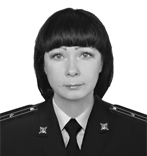
Administrative law
and administrative process
V.V. Golovko
Ph.D. (Doctor
of Juridical Sciences), professor
Omsk Academy of the Ministry of Internal Affairs of Russia
A.I. Gubin a postgraduate student of Omsk Academy of the Ministry of Internal Affairs of Russia
A.I. Gubin a postgraduate student of Omsk Academy of the Ministry of Internal Affairs of Russia
The article considers
topical implementation
issues of termination of the right to drive vehicles in
the presence of medical contraindications or medical constraints to carrying out of these activities.
There is an example of information exchange between police and
narcological
institutions.
In addition,
the
article explains the legislative approach to definition of the subject, authorized to consider the application for restoration of a special law when falling
medical grounds, as well
as the procedure of the
restoration of this right.
Key
words: medical traffic safety, medical contraindications, medical constraints, termination of
the right to drive vehicles, restoration of the right to drive vehicles.
Administrative law
and administrative process
O.A. Diser
Ph.D. (Candidate of Juridical Sciences), assistant
- professor
Omsk Academy of the Ministry of Internal Affairs of Russia
O.Y. Filippov Ph.D. (Candidate of Juridical Sciences) Omsk Academy of the Ministry of Internal Affairs of Russia
O.Y. Filippov Ph.D. (Candidate of Juridical Sciences) Omsk Academy of the Ministry of Internal Affairs of Russia
The article reveals the features of qualification of administrative
offence, provided by the
art. 20.1 Code of Administrative Offences
"Disorderly conduct".
Key words: administrative offence,
disorderly conduct, contempt
for society, strong language, public order.
Administrative law
and administrative process
О.O.Chuykina
a postgraduate
student of Saint-
Petersburg University
of the Ministry of
Internal Affairs of Russia
The article considers
the distinctive
features and characteristics
of
enforcement measures
of
administrative
prevention.
Key words:
administrative law,
administrative
enforcement,
measures of administrative
prevention.
Criminal law, criminology,
criminal and executive right
O.V. Ermakova
Ph.D.
(Candidate of Juridical Sciences)
Barnaul
Law
Institute
of
the
Ministry
of
Interior
of
Russia
e-mail:ermakova_alt@mail.ru
In presented article the author proposes fundamental rules to
construction
crimes
in the form
of materially defined crime. Given the prevalence of material construction
in crimes against property, the author formulates the requirements
for
description of criminal consequences in these
elements of crime,
and also shows the
incompleteness
used by the legislator concepts.
Keywords:
materially
defined
crime,
criminal
consequences,
crimes
against
property.
Criminal law, criminology,
criminal and executive right
V.V. Silchenko
apostgraduate student
of
Tyumen
Advanced Training Institute
of the Ministry of the Interior of the Russian Federation
e-mail:vit-silchenko@mail.ru
The article deals with the problem of deficiency of unified definition of the term "
justice", discusses
controversial aspects of existing definitions of this term. The author offers to adopt legal definition of
the term "justice"
and gives positive justifications–
effects of these
actions.
Key words:
justice, judicial power, Constitution of the Russian Federation, court, judicial proceeding, problems of justice.
Criminal law, criminology,
criminal and executive right
A.V. Sumachev
Ph.D. (Doctor of Juridical Sciences), professor
Tyumen State University
e-mail:alekssumacev@mail.ru
The article considers the concept of belonging of "right of punishment"
through the prism of the
theories of the origin of state and law.
It analys
es the concept of
"punitive power of state"
within the
natural
and legal
theory of the origin of
state and law.
Keywords:
origin
of
state, punishment, right of punishment, theological conception, natural and legal conception.

Criminal trial, criminalistics,
forensics,
operatively-search activity
S.I. Davydov
Ph.D.(Doctor
of Juridical Sciences), assistant-professor
Barnaul
Law Institute of the Ministry
of
the
Interior
of
Russia
Y.L. Boiko Ph.D. (Candidate of Juridical Sciences), assistant-professor Barnaul Law Institute of the Ministry of the Interior of Russia
Y.L. Boiko Ph.D. (Candidate of Juridical Sciences), assistant-professor Barnaul Law Institute of the Ministry of the Interior of Russia
The evidence, which were collected during the preliminary investigation with the help of
criminalistics
knowledge, means and methods,
should primarily comply with the statutory requirements, determined mainly
by the criminal procedure law. Various deviations from these requirements,
investigator’s
omissions should
only be considered in court
session and be assessed
only by the court on the possibility of their use for the establishment of truth in criminal
proceeding.
Key words:
criminalistics
aspects of evidence, process of
evidence, requirements for evidence, evaluation
of evidence, preliminary investigation and court investigation, usage
of
criminalistics know
ledge by
evaluation
of evidence.
Criminal trial, criminalistics,
forensics,
operatively-search activity
T.V. Topchieva
Ph.D. (Candidate of
Juridical
Sciences)
Barnaul
Law
Institute
of
the
Ministry
of
the
Interior
of
Russia
e-mail: tanja_top@inbox.ru
The article is devoted to the problem of
victim’s
participation
in the procedure of pre-trial
cooperation
agreement. The author
analyzed
the current criminal procedure legislation and the practice of application of pre-trial
cooperation
agreement. The analysis
concluded
the necessity
of the
notification
of
victim (civil
plaintiff
)
about
the
conclusion by
suspect
(accused)
of
pretrial cooperation agreement.
Key words:
pretrial
cooperation agreement, victim, civil plaintiff,
defendant, procedural status,
criminal proce
eding.
Criminal trial, criminalistics,
forensics,
operatively-search activity
I.A. Shletser
a
postgraduate student
of
Altai
State University
The author first poses the question
about
existence of constitutional control for
operational
investigations. The article describes
main features and characteristics of constitutional control over
operational
investigations.
Key words: constitutional
control, Constitutional Court of the Russian Federation,
operational investigations.
Civil relations
I.A. Valynkina
Altai Academy of Economics and
Law
e-mail:riki0309@rambler.ru
The article discusses the consequences of the establishment of the fact of abuse of the right, the corelation of abuse of the right with the way of protection of civil rights and
measures of legal responsibility.
Key words:
abuse of the right,failure
in protection of the right, arbitration court, legal responsibility.
Civil relations
R.A. Proschalygin
Ph.D. (Candidate of Juridical Sciences)
Barnaul
Law
Institute
of
the
Ministry
of
Interior
of
Russia
Based on the analysis of theoretical vie
ws and current legislation are established the
notion
of
subinstitute
for
injury’s redress
caused by illegal actions of preliminary investigation
agency
and defined
its structure and place in civil law of Russia.
Key words:
notion,
structure,
position of s
ubinstitute, non-contractual obligations, injury’s redress,
preliminary investigation
agency
Civil relations
A.V. Tumakov
Ph.D. (Candidate of Juridical Sciences)
Moscow University of the Ministry of Interior of Russia
e-mail:albert-tumakov@rambler.ru
The article is devoted to th
e legal nature of the legal forms of reorganization
during
the consolidation of banking business, namely "merger" and "acquisition". It denotes the
non
identity of the term
"merger" and "absorption".
The article gives a brief
description
of such
phenomenon
of legal reality
as"
takeover
of credit institutions".
Key words:
merger,
acquisition,
credit organization,
takeover,
reorganization of credit institutions,
Central Bank of Russia
Civil relations
S.S. Shevchuk
Ph.D. (Doctor of Juridical Sciences), professor
North-Caucasus Federal University
The article considers the
key issues
of
definition of
subject of
civil
law,
possibility of
attribution
corporate
and other
relations.
Key words:
subject, civil law, corporate law,
obligations.

History of State and Law
R.A. Karpov
Barnaul
Law
Institute
of
the
Ministry
of
the
Interior
of
Russia
The article discusses the principles of education of prisoners in places of confinement in the Altai
province in the early 20s of the last century, analyzes the causes of inefficiency of some educational activities.
Key words: educational work, forced-
labor camp, labor activity of prisoners, cultural-educational
and training work.
History of State and Law
D.E. Kuznetsov
a
postgraduate
student
of
Polzunov
Altai
State Technical University
The article discusses issues related to the protection of public order by officers of the
Soviet militia
in the West Siberia in the beginning of the 30s years of the last century.
Key words: militia, public order,
disorderly behavior,
preventive work
among minors,
patroling,
brigades of
police assistance.
History of State and Law
E.V. Suverov
Ph.D. (Doctor of Historical Sciences), assistant-professor
Barnaul
Law
Institute
of
the
Ministry
of
the
Interior
of
Russia
The article is devoted to policy tightening of the Soviet state at the end
of 20s, that led to increase of
the number of convicted in the country. The author shows how the Soviet Union created labor camps,
where with the help of prison labor formed the country’s economic
strength.
The
article tells about one
of these camps–
Siberian labor camp.
Key words:
forced-
labor camp, convicted, labor activity, ration.
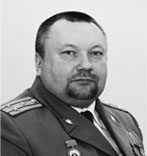
State and legal regulation
public relations
I.A. Kibak
Ph.D. (Candidate of Psychological Sciences), assistant
-professor
Academy of the Interior
Ministry
of
the Republic of Belarus
e-mail:ivankibak@list.ru
The article deals with the
object and the subject
of the public opinion research
on the
legislative activity.
Empirical
development of
investigation’s subject is examined,
which includes
three sets
of interrelated
factors:
informational and
communicational
interaction
between population and
legislature;
efficiency
of
influence
of
consumed
inf
ormation on the
formation of the public opinion
on the parliamentary
(legislative) activity, specifics life
activity of people
and the House
of Representatives
as the
subjects of interaction.
Key words: public opinion, object
and subject of research, parliamentary
(legislative) activity,
deputy.
State and legal regulation
public relations
E.G. Kravchenko
a
postgraduate student
of
Academy of the Federal Penal Service
of Russia
e-mail:lenka5771@mail.ru
This article reveals the problems of modernization of legal education and the legal culture in the
course of professional activities of staff members. The ratio of the concepts of "modernization", "evolution", "reform".
Keywords: legal education, legal culture, modernization, development, reform, law enforcement
of ficials.
State and legal regulation
public relations
V.F. Nesterovich
Ph.D. (Candidate of
Juridical Sciences)
Lugansk State University of the Interior by
E.A. Didorenko (Ukraine)
e-mail: wnester@ukr.net
A
long with the term "public"
are
used such concepts as "public representatives", "all interested
persons", "citizens", "civi
l society organizations", "public institutions", "general public" and "people".
This in turn leads to terminological confusion, and complicates theoretical legal identity to the public.
This article demarcates the notion "public" and related concepts and t
erms in legal science.
Key words: public, citizens, non-governmental organizations, public institutions, general public,
people.
State and legal regulation
public relations
A.A. Yunusov
Ph.D. (Doctor of
Juridical Sciences), professor
Academy of the Federal Penal Service of Russia
E.G. Kravchenko a postgraduate student of Academy of the Federal Penal Service of Russia e-mail:lenka5771@mail.ru
E.G. Kravchenko a postgraduate student of Academy of the Federal Penal Service of Russia e-mail:lenka5771@mail.ru
The article reveals the problems of the impact of legal education and legal culture on the process of
preparation of employees of the penal system. The legal education
of employees of internal Affairs
is
understood as a
purposeful activity of
heads, employees of educational
divisions, mentors
and other
subjects of educational process on f
ormation of legal consciousness.
Keywords: legal education, legal culture,
professional
training.
Administrative law
and administrative process
F.P. Vasilyev
Ph.D. (Doctor of Juridical Sciences),
assistant-professor,
Member of the Russian academy of
juridical
sciences
e-mail:vasilev17@mail.ru
J.S. Koroleva Police department No1 of the Interior of Russia of Barnaul e-mail: Yulehka84@mail.ru
J.S. Koroleva Police department No1 of the Interior of Russia of Barnaul e-mail: Yulehka84@mail.ru
The article is devoted to the organization and work of the department of the local police authorities of
regional level.
Key words: safety, law, Interior of Russia, security, organization, department, office, public, order,
police, RTOVD, subject, territorial department.
Administrative law
and administrative process
A.G. Bachurin
(a
postgraduate student
of
Saint-Petersburg University of the
Interior
of
Russia)
Barnaul
Law
Institute
of
the
Ministry
of
the
Interior
of
Russia
The article gives the analysis of the current legislation regulating the procedure for
holding
public
assemblies
with the use of vehicles,
discloses
some aspects of enforcement. The article provides
scientifically
grounded
recommenda
tions for
improve
ment of
the existing
normative legal base.
Key words:
administrative and legal regulation, public assemblies,
vehicles, motor rally.
Criminal law, criminology,
criminal and executive right
R.M. Abyzov
Ph.D. (Doctor of Juridical Sciences), professor, Honored
lawyer of Russian Federation
Barnaul
Law
Institute
of
the
Ministry
of
the
Interior
of
Russia
e-mail:rav1861@yandex.ru
P.D. Frizen Ph.D. (Candidate of Juridical Sciences), assistant-professor Altai territory Administration
P.D. Frizen Ph.D. (Candidate of Juridical Sciences), assistant-professor Altai territory Administration
In the article
are considered
basic
directions
of anti-corruption policy of
state power
of
Russia
in
recent times, in the light of the accepted National plan of
fight
corruption.
The
author
describes
main
instruments of
implementation
of
anti-corruption
policy and
an
alyses
their efficiency
as
applied
to public authorities.
Keywords: corruption, public service, a security of a society,
anti-corruption
policy.
Criminal law, criminology,
criminal and executive right
E.S. Anichkin
Ph.D. (Doctor of Juridical Sciences),
assistant-professor
Altai
State University
I.V. Botvin a postgraduate student of Barnaul Law Institute of the Ministry of the Interior of Russia
I.V. Botvin a postgraduate student of Barnaul Law Institute of the Ministry of the Interior of Russia
This article is about
issues connected with
causing damage to property by fraud or breach of confidence
as crimes against property in the legislation of the countries of Europe
. It is conducted
a
comparative legal analysis of the Criminal Laws of the countries of Europe and the Russian Federation for causing damage to property by fraud or breach of
confidence.
Keywords: property damage, fraud, breach of
confidence,
comparative legal analysis.
Criminal law, criminology,
criminal and executive right
Y.V. Puzyreva
Ph.D. (Candidate of Juridical Sciences)
Moscow University of the Ministry
of Interior of Russia
e-mail: yuliya_dugina@mail.ru
The article deals with
current issues
of international cooperation in
the fight against crime
on the
example of
Interpol.
The author pays
attention to
information exchange
of states-members of the Organization
by
directions
of
special notices
of
the General Secretariat
of Interpol.
Moreover, the author
analyzes
the current
notification system, as well as
statistic
of
their
notions
in recent years.
Keywords:
Interpol,
the Interpol General Secretariat, notifications, international cooperation,
crime
prevention.
Criminal trial, criminalistics,
forensics,
operatively-search activity
S.M. Kuznetsova
Ph.D. (Candidate of Juridical Sciences), assistant-professor
Barnaul
Law
Institute
of
the
Ministry
of
the
Interior
of
Russia
The article deals with the issues arising in connection with possible use of explanations, received
during the
check
report a crime as evidence in a criminal case. Special attention is paid to the problems
of observance of the rights of
persons who are deprived explanations.
Key words: explanation, evidence,
procedural rights, check report a crime, initiation of
criminal case.
Criminal trial, criminalistics,
forensics,
operatively-search activity
T.G. Olefirenko
Barnaul
Law
Institute
of
the
Ministry
of
the
Interior
of
Russia
The author defends the idea that the head of the investigative body, being a powerful entity to ensure the legality of preliminary investigation, has a large
scope
of procedural powers, but his activities
implemented within the framework of receiving the court decision about the production of procedural
actions, limiting the constitutional rights and freedoms of citizens, has substantial gaps, in this regard
the author offers
to
improve
it.
Key words: procedural powers, preliminary investigation, head of the investigative body, approval
procedure
Criminal trial, criminalistics,
forensics,
operatively-search activity
I.D. Shatokhin
a
postgraduate student
of
Barnaul
Law
Institute
of
the
Ministry
of
the
Interior
of
Russia
e-mail: sha_to_hin@mail.ru
For the first
time the
author raises the question of the existence of constitutional
control of
operational
investigations. The article describes the main features and characteristics of the constitutional
control
of operational
investigations.
Key words: constitutional
control, Constitutional Court of the Russian Federation,
operational investigations
Civil relations
V.A. Boldyrev
Ph.D. (Doctor of Juridical Sciences),
assistant-professor
Omsk Academy of the
Ministry of Internal Affairs of the Russian Federation
The article takes a stand
that
civil legislation should be interpreted as allowing the owner
when
adopting the st
atute
to receive a
possibility for
an institution
to
carry out activity on transfer of property, performance of works or services
activities, and
also to
get profit. The existence of such determination in the law
can not
be interpreted as a ban on the definition as the main purpose of the institution (of
his duty) implementation of socially useful activity on a
fee
basis.
Key words:
nonprofit
organization, institution,
income-generating
activities, entrepreneurial activity, profit.
Civil relations
S.I. Gutnik
a
postgraduate student
of
Law institute of Siberian
Federal University
e-mail:sergeygutnik89@mail.ru
A.V. Teplyakova a postgraduate student of Law institute of Siberian Federal University e-mail:annetta_t@mail.ru
A.V. Teplyakova a postgraduate student of Law institute of Siberian Federal University e-mail:annetta_t@mail.ru
In the article is analyzed the project of Federal law «About regulation of Russian segment of the Internet network» from the specific point of view protection and defense of human rights and freedoms in
processing of personal
information. The authors come to the conclusion about the need to install protective measures together with defense measures for processing of personal
information
in the Internet.
Key words:
Internet, personal
information, protection of human rights and freedoms, defense of
human rights and freedoms
Civil relations
A.S. Selivanov
Barnaul
Law
Institute
of
the
Ministry
of
the
Interior
of
Russia
e-mail:sas_barn2006@mail.ru
The article provides theoretical and legal characteristics of the technology
of
verification enforcement proceedings. The author describes the individual techniques within the legal verification technology and offers
to use the
criterion
of
tasks
for their classification.
Key words: enforcement
production, legal technology,
bodies of state power,
self-governing
authorities
and forms
of
defense
of rights.
History of State and Law
A.A. Aseev
Ph.D. (Candidate of Historical Sciences)
Barnaul Law Institute of the Ministry of the Interior of Russia
e-mail: aseevaa@buimvd.ru
The question about the statehood in nomadic community of Kazakh Hordes is studied in this article.
Some brief characteristics of nomadic communities given by scientists-orientalists are considered. The
nature of Kazakh statehood, the factors that influence its appearance and decline are analyzed. The
conclusion about the opportunity of remaining and developing of some elements of the statehood of Kazakh
Hordes after joining the Russian Empire are made.
Key words: nomadic society, state and its features, tribal system, manufacturing and public relations,
khan and supreme power, political relations, social categories, reforms
History of State and Law
A.V. Bykov
Ph.D. (Candidate of Historical Sciences)
Omsk Academy of the Interior of Russia
e-mail: aleksandr091070@rambler.ru
The way of representing the Great Patriotic War in foreign literature in the 1950-80s and its influence
to the modern research is analyzed in this article. These publications are considered to be the base for
modern mispresentation of the War. Some experience of counteraction against the history distortion is given
here. The author offers some ways how to apply his experience in modern situation.
Key words: patriotic war, Great Patriotic War, mispresentation of a history, distortion of historical
facts, counteraction against mispresentation of the history, historical sources
History of State and Law
V. Klimachkov
Barnaul Law Institute of the Ministry of the Interior of Russia
The author examines the causes of judicial reforms by Peter I, studies functional and organizational
unity of the judiciary and the government, traces the reforms in progress making them strict to go through
all the stages. The main causes contributing to the establishment of legal education in Russia are analyzed.
Key words: judicial reform, judiciary, justice board, krigsrechty, General Court.
State and legal regulation
public relations
E.S. Anichkin
Ph.D. (Doctor of Juridical Sciences), assistant-professor
O.L. Kasantseva Ph.D. (Candidate of Juridical Sciences) Altay State University
O.L. Kasantseva Ph.D. (Candidate of Juridical Sciences) Altay State University
This article is devoted to consolidation and development of a local self-government as one of the
crucial constitutional valuables in the decisions of Constitutional Court of the Russian Federation.
Key words: constitutional valuables, Constitution of the Russian Federation, Constitutional Court of
the Russian Federation, local self-government.
State and legal regulation
public relations
Y.V. Anokhin
Ph.D. (Doctor of Juridical Sciences), assistant-professor
Barnaul Law Institute of the Ministry of the Interior of Russia
S.A. Vorobyova postgraduate of Omsk Law Academy of the Interior of Russia
S.A. Vorobyova postgraduate of Omsk Law Academy of the Interior of Russia
The authors of this article defined some questions which influence law quality and security to citizen’s
rights. The main source of public regulation in the state is efficiency of a law-making activity.
Key words: law, law quality, social and legal experiment, monitoring, citizen’s rights, law-making
process.
State and legal regulation
public relations
E.M. Gunin
Ph.D. (Candidate of Juridical Sciences)
Russian State Trade and Economics University, Kemerovo Institute (branch)
e-mail: ORF.08 mail.ru
S.Y. Belonogov Kemerovo technological Institute of food industry e-mail: sbielonoghov@mail.ru
S.Y. Belonogov Kemerovo technological Institute of food industry e-mail: sbielonoghov@mail.ru
Title insurance is a new kind of insurance against financial risks, which is increasingly important in
connection with the development of mortgage lending. The article introduces the main aspects of the legal
regulation of title insurance.
Keywords: title insurance, real estate property, insurer, the insured, insured risk, loss, the insurance
indemnity.
State and legal regulation
public relations
A.O. Kazantsev
Ph.D. (Candidate of Juridical Sciences), assistant-professor
Authorized Court of Sverdlovsk Region
The paper discusses the interrelation of the principle of judges’ independence of constitutional courts
of the constituents of the Russian Federation with a term of their office.
Key words: constitutional courts of the constituents of the Russian Federation; the principle of
independence of judges; judges’ office term in constitutional courts of the constituents of the Russian
Federation
State and legal regulation
public relations
V.Y. Panteleev
Ph.D. (Candidate of Juridical Sciences), assistant-professor
Chairman of Authorized Court, Sverdlovsk Region
The article analyses the state of the regional constitution justice, its role and efficiency of the regional
constitutional (charter) courts of the constituents of the Russian Federation in protection fundamental
rights and freedoms of citizens.
Key words: constitutional (charter) courts of the constituents of the Russian Federation, protection of
citizen’s constitutional rights and freedoms, modernization.
State and legal regulation
public relations
I.V. Filimonova
Ph.D. (Candidate of Juridical Sciences)
Russian Economic University by G.V. Plekhanov, Pyatigorsk branch,
Stavropol Krai
e-mail: ifilim@yandex.ru
The purpose of this article is to determine the place of a legal fiction in the system of legal techniques.
The analysis of the different positions of scientists on the subject reveals advantages and disadvantages of
its use, helps develop approaches and define the author’s point of view on study issues.
Key words: legal fiction, legal techniques, legal category, legal structure, techniques, tools, way,
method of legal techniques.
Administrative law
and administrative process
F.P. Vasilev
Ph.D. (Doctor of Juridical Sciences)
Academy of Management of the Interior of Russia
S.V. Vorotnikova Legal department of the Interior of Russia
S.V. Vorotnikova Legal department of the Interior of Russia
The article deals with some problems of lawyers’ training. Much attention is paid to the definition
of specialization and its misusage. The author points out the problem of teaching subjects with scientific
background to do it in different ones.
Key words: legal awareness, literacy, legal knowledge, law-governed state, quality of a lawyer’s
training.
Administrative law
and administrative process
I.A. Zaitsev
Ph.D. (Candidate of Juridical Sciences)
All-Russian Scientific Research Institute of the Interior of Russia
E.Y. Larina Department of the Interior of Russia of Tula Region
E.Y. Larina Department of the Interior of Russia of Tula Region
The article deals with the problems of enforcing laws about administrative supervision of released
people by local police authorities according to Russian legislation. Some amendments to current criminal
and administrative legislation are offered.
Key words: administrative supervision, correctional institution, unserved term, social rehabilitation,
preventive measures, registration of foreigners, preventive supervision
Administrative law
and administrative process
A.V. Melnikov
Chief Department of the Interior of Russia
The author considers some problematic questions of police officers’ training according to modern
requirements which are defined in federal and departmental legal documents. These papers ensure the
development of police officer’s professional skills and abilities.
Key words: legal education, juridical culture, legal consciousness, competencies.
Criminal law, criminology,
criminal and executive right
M.A. Bugera
Ph.D. (Candidate of Juridical Sciences)
Volgograd Academy of the Interior of Russia
R.A. Semenyuk Ph.D. (Candidate of Juridical Sciences) Barnaul Law Institute of the Ministry of the Interior of Russia e-mail: ruslanbarnaul@mail.ru
R.A. Semenyuk Ph.D. (Candidate of Juridical Sciences) Barnaul Law Institute of the Ministry of the Interior of Russia e-mail: ruslanbarnaul@mail.ru
In the article the problems of dispensary and preventive monitoring of individuals, patients with
alcoholism or drug addiction are considered. The authors analyze the forms of cooperation between
divisions of precinct police with the health authorities in the monitoring of people suffering from alcoholism
or drug addiction. Some theoretical conclusions are made. Authors’ findings have scientific and practical
value.
Key words: observation, patients with alcoholism or drug addiction, individuals representing a danger
to others.
Criminal law, criminology,
criminal and executive right
O.V. Ermakova
Ph.D. (Candidate of Juridical Sciences)
Barnaul Law Institute of the Ministry of the Interior of Russia
e-mail:ermakova_alt@mail.ru
The author considers the notion of crime terminal time. Special attention is paid to its relation with
notions of the completed crime and the crime terminal time.
Key words: crime terminal time, completed crime.
Criminal law, criminology,
criminal and executive right
I.N. Zavarykin
Barnaul Law Institute of the Ministry of the Interior of Russia
е-mail:criminal-man@mail.ru
In the article the author discloses actual problems of general victimological prevention of crimes on
the basis of sufficient theoretical and empirical materials. He also proposes the complex of goal-oriented
activities for their elimination.
Key words: victimological prevention of crimes, victims of crimes, determinants of victimological type,
complex of goal-oriented activities of general victimological pr
evention of crimes.X
Criminal law, criminology,
criminal and executive right
A.V. Litvinova
doctoral candidate of South-Ural State University
e-mail: aelita@mail.ru
Various scientific approaches to the definition of the rule of law are systemized and analyzed in this
article.
Key words: law order, lawfulness, public order
Criminal law, criminology,
criminal and executive right
R.A. Semenyuk
Ph.D. (Candidate of Juridical Sciences)
Barnaul Law Institute of the Ministry of the Interior of Russia
e-mail: ruslanbarnaul@mail.ru
The present article deals with the quantitative and qualitative characteristics of the main kinds of
violent crimes. The author analyzes the statistics of violent crime, the determinants of violence and makes
theoretical conclusions. The provisions of the article are both of scientific and practical value.
Key words: violence, violent crime, the Siberian Federal District.
Criminal law, criminology,
criminal and executive right
A.F. Fyodorov
Ph.D. (Candidate of Pedagogic Sciences), assistant-professor
Barnaul Law Institute of the Ministry of the Interior of Russia
e-mail: fedoroffaf@mail.ru
The author analyses the dynamics of crime repetition, its main causes. There are arguments about the
penitentiary system reforming in order to reduce the level of criminal recidivism.
Key words: deprivation of liberty, the relapse of crimes, crime repetition, the criminal punishment, the
penitentiary system.
Criminal law, criminology,
criminal and executive right
O.M. Shaganova
Barnaul Law Institute of the Ministry of the Interior of Russia
e-mail: olga.shaganova@yandex.ru
The article examines various viewpoints of the scientists on the direct object of the crime provided by
the Art. 156 of Criminal Code of Russia. Some ways of solution of these disputable positions are offered.
Key words: object of the crime, minor, a minor’s upbringing duty default.
Criminal law, criminology,
criminal and executive right
A.V. Shesler
Ph.D. (Doctor of Juridical Sciences), professor
Tomsk State University
The author defines a disputable problem about liberalization of domestic Criminal law. From the point
of view of liberal valuables, democracy, civil society and citizen’s rights can be considered as objects
of criminal-legal security. Criminal punishment without its punitive character tends to change its nature
due to liberal valuables. If a punishment acquires features of civil responsibility, it fails its criminal-legal
nature. The tendency of a private interest spreading in criminal law leads to unacceptable conflict in legal
relations.
Key words: liberalism, body of electors, citizen’s rights, subject discretion, criminal-legal security,
private interest in criminal law, commutation of criminal responsibility
Criminal trial, criminalistics,
forensics,
operatively-search activity
D.A. Voronov
Ph.D. (Candidate of Juridical Sciences)
Barnaul Law Institute of the Ministry of the Interior of Russia
e-mail: voronius@yandex.ru
The article is about forced capacity and base of application of other measures of criminal procedure
enforcement as a means of state protection of criminal trial participants.Different options for improving the
current legislation in order to improve security of criminal trial participants are offered.
Key words: security measures, state protection, measures of protection, enforcement measures,
temporal suspension of a post, seizure of property, removal from the courtroom.
Criminal trial, criminalistics,
forensics,
operatively-search activity
Y.P. Garmaev
Ph.D. (Doctor of Juridical Sciences), assistant-professor
Buryat State University
e-mail: garmaeff@yandex.ru
This article deals with typical and widely spread criminalistic cases of duties and court’s decisions
breach. The author offers to use some criminalistic means and methods to restore law-abiding citizens’ and
creditors’ broken rights according to Art. 159,177 of Criminal code of Russia.
Key words: the criminological situation, creditor, fraud, prognosis, judicial perspective.
Criminal trial, criminalistics,
forensics,
operatively-search activity
S.I. Davydov
Ph.D. (Doctor of Juridical Sciences), assistant-professor
Altay State University
Y.L. Boiko Ph.D. (Candidate of Juridical Sciences), assistant-professor Barnaul Law Institute of the Ministry of the Interior of Russia е-mail: boiko@buimvd.ru
Y.L. Boiko Ph.D. (Candidate of Juridical Sciences), assistant-professor Barnaul Law Institute of the Ministry of the Interior of Russia е-mail: boiko@buimvd.ru
The author states that corruption crimes must bring some additional responsibility if there are
obligatory grounds to prove such kind of a crime. The features as organized and systematic character, high
position, execution or non-execution of one’s duties and instructions, any reward to a giver’s benefit are to
be taken into consideration.
Key words: the term of corruption, corruption, additional criminal responsibility, criminalistical
significant, criminal legal features.
Criminal trial, criminalistics,
forensics,
operatively-search activity
S.V. Ermakov
Barnaul Law Institute of the Ministry of the Interior of Russia
e-mail: ermakov_alt22@mail.ru
The article the author considers the question of the recognition of official of certain categories of
the health care professional. Special attention is paid to the notion of organization and administrative
functions of the health care professional.
Keywords: official, bribe taking, of health care professional.
Criminal trial, criminalistics,
forensics,
operatively-search activity
D.V Kim
Ph.D. (Doctor of Juridical Sciences), professor
Barnaul Law Institute of the Ministry of the Interior of Russia
e-mail: kimklo@mail.ru
Criminalistic description of crimes is considered to be not only one of the units of investigative methods,
but it is its information base as well taking into consideration its structur
e.
Key words: criminalistic description of crimes, criminal activity, a criminal, criminal situation,
criminalistic methods of investigation.
Criminal trial, criminalistics,
forensics,
operatively-search activity
V M. Meshkov
Ph.D. (Doctor of Juridical Sciences), professor, Honored Lawyer of Russia
Kaliningrad branch of Saint-Petersburg University of MIA of Russia
The article deals with some psychological aspects of getting true time evidence. Knowledge about time
is a judgement, while space doesn’t have such a feature.
The author mentions that space coordinates can be measured by time standards and unknown quantities
can be measured with the help of Geometry. Time relations are estimated by any subject individually based
on his experience and knowledge. The author offers specific tactic methods for obtaining information about
time features of a crime.
Key words: time details, subjective time, process of acquisition, memorizing and reproducing of time
details, time traces, specific tactic methods of obtaining the information about time features of a crime,
phenomena of reminiscences for establishing time features.
Civil relations
N.M. Zakharova
postgraduate of Ural Law Institute of the Interior
The article is devoted to the problem of subject’s responsibility for injuries caused to a police officer
in the discharge. Based on the current legislation the author makes a conclusion that both a state and a
tortfeasor can be responsible for indemnity of damages to a police officer in the discharge.
Key words: indemnity of damages, police officer’s life or health, performance of professional duties,
responsibility of a tortfeasor, responsibility of a state.
Civil relations
M.N. Semyakin
Ph.D. (Doctor of Juridical Sciences), professor
Ural Law Institute of the Interior of Russia
e-mail: urmvd@mail.ru
Theoretical and methodological problems of application of Article 1 of the Civil code of the Russian
Federation, the influence of its fundamental beginnings on interpretation and use of the civil legislation are
considered.
Key words: civil law, basic beginnings, legal principles, application of the right
Civil relations
O.S. Cherepanova
Ph.D. (Candidate of Juridical Sciences)
Barnaul Law Institute of the Ministry of the Interior of Russia
e-mail: olga41778@mail.ru
The article analyses the grounds for compensation by the state for harm caused to the individual. The
author gives arguments in their failure. A series of measures, aimed at establishing a unified procedure of
the compensation for harm to persons, victims of the crimes is pr
oposed.
Key words: state, personality, compensation of damage, responsibility, victim, crime.
Civil relations
A.A. Chesnokov
Ph.D. (Candidate of Juridical Sciences), assistant-professor
Barnaul Law Institute of the Ministry of the Interior of Russia
e-mail: chesnokovaa@mail.ru.
In the article the main stages of variation of legal regulation of inadequancies, the basic tendencies and
prospects of the given process are presented.
Key words: an inadequancy, bankruptcy, arbitration operational director, history of bankruptcy.
History of State and Law
A. A. Aseev
Ph.D. (Candidate of Historical Sciences)
Barnaul Law Institute of the Ministry of the Interior of Russia е- mail: aseevaa@buimvd.ru
The article reveals the problematic issues of administrative changes related to the voluntary entrance
of Kazakh zhuzes into the Russian Empire in the last quarter of the XVIII century. The author gives a brief
description of the structure of the Kazakh nomadic society, the reaction of its layers on attempts of inclusion
in the imperial legal field, values the effectiveness of administrative reform projects of O.A. Igeltrom,
J. Bower.
Key words: voluntary annexation, nomadic society, the Kazakh aristocracy, institute of Khan’s power,
social development, political and cultural traditions, economic structure, to reform, administrative structure
and management, boundary court, administrative body, satisfaction of claims, common law, processes of
modernization.
History of State and Law
J.A. Malkova
а postgraduate student of Altay State Technical University by I.I. Polsunov
е-mail:malkov01@rambler.ru
There were some changes, happened in the penitentiary system of the Altai region during the post¬war period, which connected with the decrease of number ofprisoners after the amnesty held in 1945. In 1946 the criminal-correctional system, being governed by NCIA of USSR was transferred to MIA of USSR, preserving its basic functions: the criminals' isolation, the organization of the prisoners' work, detention and guarding of the prisoners of war and the interned, struggle with the homelessness and neglect of children, building of the strategic objects. Correctional-labour colonies were functioning in Barnaul, Biysk, Rubtsovsk, Oyrot-Tur, Chesnokovka, Slavgorod at that period. After the fascist Germany and military Japan were defeated, the camps for the prisoners of war for the Japanese and German armies were conducted in the Altai Region.
Key-words: criminal-correctional system, soviet penitentiary policy, correctional-labour camp, colony, prisoners, the prisoners of war, the homeless, organization of prisoners' work, NCIA..
History of State and Law
E.V Suverov
Ph.D. (Doctor of Historical Sciences), assistant-professor
Barnaul Law Institute of the Ministry of the Interior of Russia
е- mail: suverovev69@mail.ru
After the February revolution of 1917, in the Altai province, there were serious changes in the activity
of criminal-correctional system. Universal liberalization, the revolutionary anarchy seriously undermined
the foundations of the penitentiary system. In this period there were frequent cases of disobedience to
supervisors’ staff, numerous requirements to mitigate the regime of prisoners’ detention, mass escapes and
attacks on prison officers. Galloping inflation in the country aggravated the shortage of personnel in the
penitentiary system of Altai.
Key words: prisons, camps, prisoners, criminal-correctional system, Altai province, supervisors